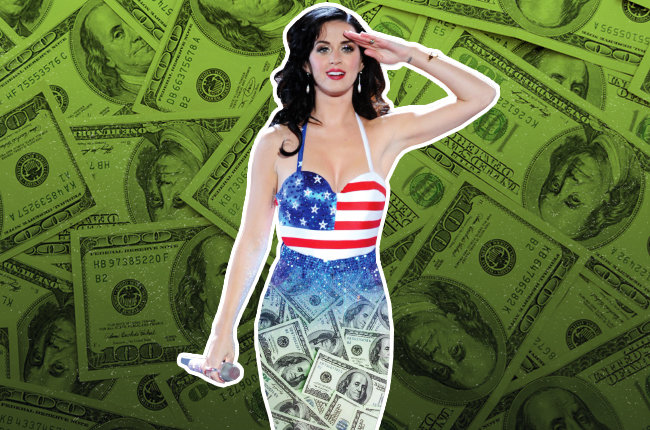When South American concert promoter Move Music signed contracts to bring Katy Perry and System of a Down to play shows in Colombia this fall, the exchange rate was a comfortable 1,900 pesos per dollar. A mere six months later, the value of the dollar has soared to 3,000 pesos, the highest in the country’s history.
“It’s crazy,” says Move CEO Phil Rodriguez, who has booked global acts in Latin America for more than 30 years and whose fall shows in the region also include Rod Stewart and Magic! “You have to remember, all these concerts were booked months in advance and the dollar exploded in the last couple of months. When prices could be readjusted they were readjusted, and when they could not it just makes the final results thinner for everybody. But what we’re going through, everyone in the world is going through to some degree.”
Also on the losing end: consumers, who face jacked-up prices on everything from parking to sodas as the promoter attempts to minimize the sting.
As currencies continue to fluctuate around the world, concert promoters are modifying offers to align with new financial realities, getting creative in their ticket-bundling and prices, and beefing up sponsorships. While some deals are struck in local currency, the U.S. dollar is the norm, typically a guarantee in dollars against net profits.
“Even the Canadian dollar has moved against the US dollar,” says Bill Zysblat, partner in RZO and a veteran tour accountant of many global tours by such artists as David Bowie and the Rolling Stones. The current power of the dollar is, “great for overseas artists touring here,” says Zysblat, “but not the reverse.”
By way of example, Zysblat offers a German date that is $300,000 guarantee against 85 percent of the net. “When you booked the date, you computed that at a sell-out you would earn $450,000,” he explains. “But now that the Euro dropped, at a sell-out you only get your $300,000 because the net at the exchange rate of today is $290,000.” But the Euro is still the Euro.
Currency fluctuations are an inherent risk of global touring, says Arthur Fogel, chairman of Live Nation’s global touring division and producer of current tours by U2 and Madonna. While that risk can never be completely eliminated, it can be mitigated by a currency hedge, a type of insurance that protects against fluctuations by locking in future transaction amounts at a certain rate — “hopefully with correct advice on which way things are trending,” says Fogel.
In India, where the rupee has been consistently weak against the dollar, hedges are “the only solution,” says Ajay Nair, director of Only Much Louder, which is bringing Mark Ronson and Megadeth to its NHT7 Weekender festival. “Artists are expecting a [certain] dollar amount,” says Nair. “It doesn’t matter how many rupees you’re spending to get that.”
Consequently, promoters are thinking conservatively. “Overall, the offers in the region this year have been lower than last,” admits Philippe Siegenthaler, co-owner and talent buyer for Absent Papa, the company that produces some of Colombia’s top festivals, including Estereo Picnic, Sónar Bogota and the upcoming Lollapalooza Colombia.
“But the important thing is bands and management know what’s going on and they know to expect offers that adapt to the new reality. Our desire to grow this market is still very open — and very hot.”


